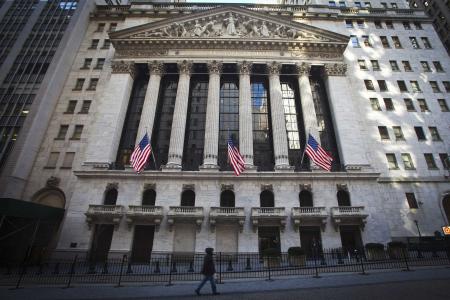By Jessica Menton -

U.S. stocks opened higher Friday, with the Dow Jones Industrial Average topping the psychologically important 18,000 milestone, after oil prices rose above $60 a barrel for the first time in 2015. The move comes a day after all three major U.S. indices closed at their highest level this year.
The blue-chip Dow smashed the 18,000 milestone for the first time on Dec. 23, 2014 after data revealed the U.S. economy grew at its quickest pace in more than a decade in the third quarter.
The Dow, which measures the share prices of 30 large industrial companies, gained 46.84 points, or 0.26 percent, at 18,019.22; the S&P 500 stock index added 5.15 points, or 0.23 percent, at 2,093.33. The Nasdaq Composite rose 13.37 points, or 0.28 percent, at 4,871.21.
The recent rebound in the price of global oil prices has been driven by the sharp drop in the number of rigs drilling for oil and the slew of announcements from major oil companies that are cutting back on investment, according to London-based firm Capital Economics.
“The rebound in the price of Brent over the last two weeks supports our view that oil prices will gradually climb back to around $70 per barrel over the medium term helped on their way by further evidence of reductions in investment. However, we do not expect prices to shoot back to $100 anytime soon,” Tom Pugh, commodities economist at Capital Economics, said in a research note Friday.
Brent crude, the benchmark for global oil prices, added $2.20 to $61.48 a barrel for April 15 delivery on the London ICE Futures Exchange. West Texas Intermediate crude, the benchmark for U.S. oil prices, added $1.54 to $52.75 a barrel for March 15 delivery on the New York Mercantile Exchange.
The global markets also received a boost after the euro zone economy expanded stronger than expected last quarter, boosted by strong growth in Germany, Europe's largest economy. Gross domestic product, which includes the 18 countries that share the euro, rose 0.3 percent higher in the fourth quarter compared with the previous period.
